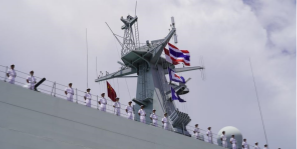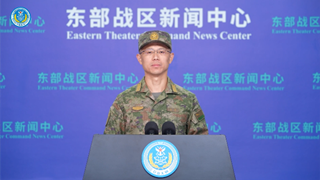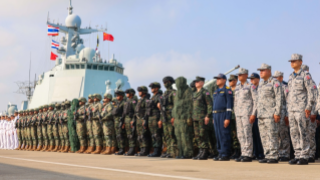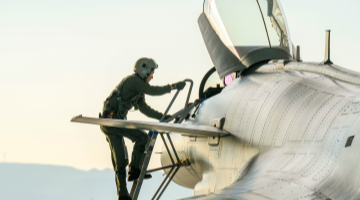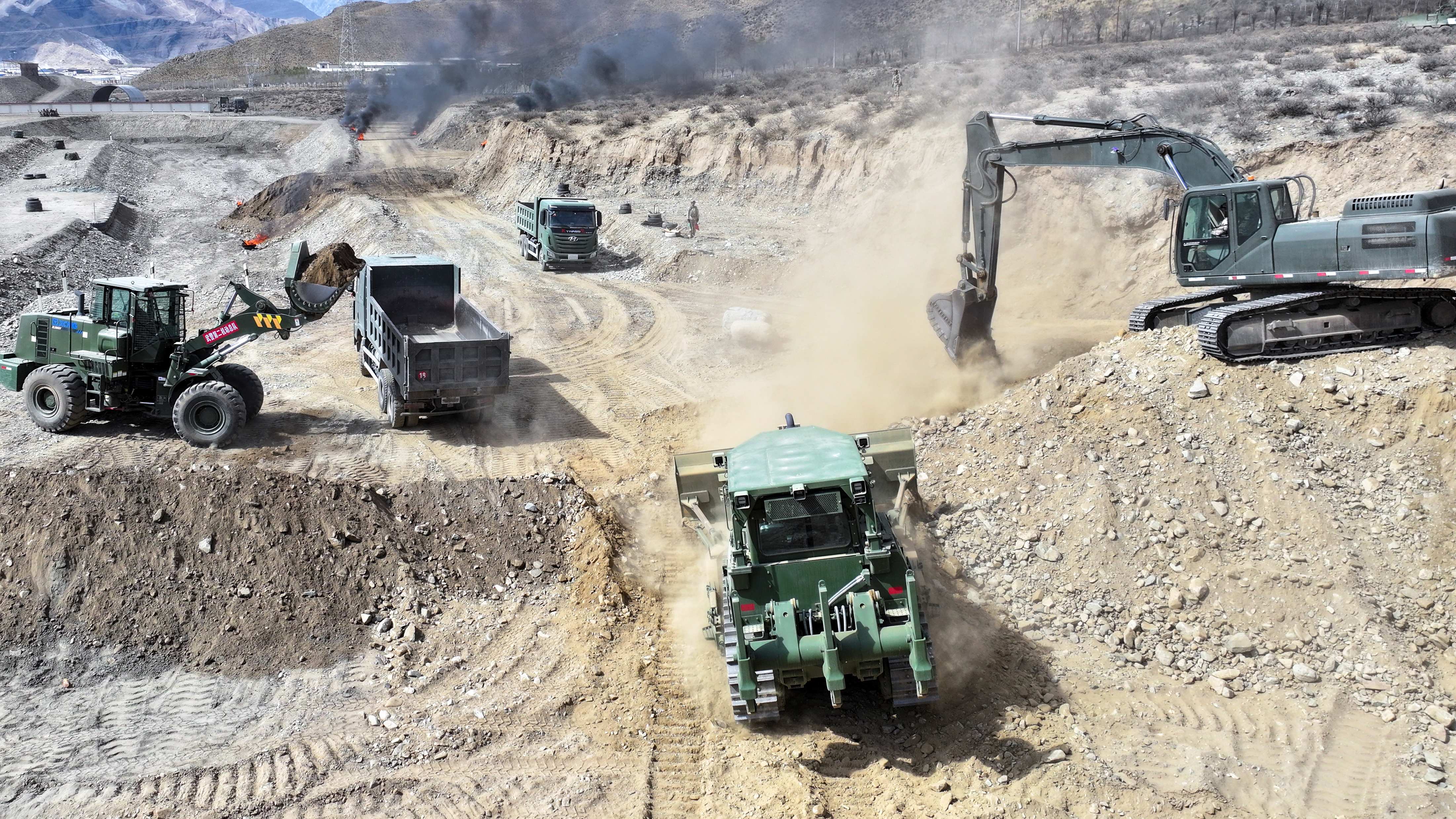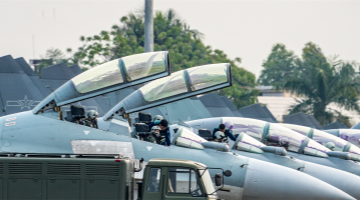By Chen Yang
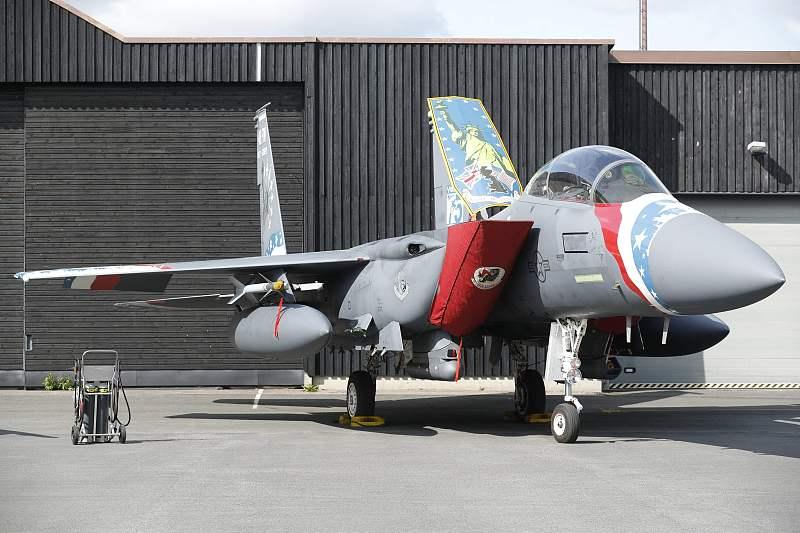
A US Air Force F-15E Strike Eagle dual-role fighter participating in Arctic Challenge Exercise 2023 in Tampere, Finland on May 31, 2023.
In response to a report released recently by the US Pentagon concerning China's Arctic policy, Mao Ning, the Chinese foreign ministry spokesperson, said at the regular press conference on Monday that China is an important stakeholder in Arctic affairs and always participates in Arctic affairs in accordance with the basic principles of "respect, cooperation, win-win result and sustainability". The US is engaged in misrepresenting China's Arctic policy and makes irresponsible statements regarding China's normal activities in the Arctic conducted in compliance with international law. This is not conducive to peace, stability and cooperation in the Arctic.
China is an active participant, builder and contributor in Arctic affairs. Geographically, China is a "Near-Arctic State", one of the continental States that are closest to the Arctic Circle. China is closely involved in the trans-regional and global issues in the Arctic, especially in such areas as climate change, environment, scientific research, utilization of shipping routes, resource exploration and exploitation, security, and global governance. These issues are vital to the existence and development of all countries and humanity. Meanwhile, the natural conditions of the Arctic and their changes have a direct impact on China's climate system and ecological environment, and, in turn, on its economic interests in agriculture, forestry, fishery, marine industry and other sectors. Therefore, to explore and understand the Arctic serves as the priority and focus for China in its Arctic activities. Nikolay V. Korchunov, Ambassador at Large for Arctic Cooperation at the Ministry of Foreign Affairs of Russia and Senior Arctic Official of Russia to the Arctic Council, has commented that China's activities in the Arctic region do not pose a threat but rather serve as an example of good conduct.
The US is attempting to turn the Arctic into an arena for geo-political games. In recent years, China has spared no efforts to contribute its wisdom and strength to the development of the Arctic region. In contrast, the US has disrupted and sabotaged the peaceful and stable environment of the Arctic. On the one hand, the US is striving to strengthen its "presence" in the Arctic region. In September 2022, the US Department of Defense announced the establishment of the Arctic Strategy and Global Resilience Office. In February 2023, US President Joe Biden appointed the first Ambassador at Large for Arctic Affairs of the US. On the other hand, the US has strengthened its military deployment and hyped up the so-called "Great Power Competition". The US Army established the 11th Airborne Division in Alaska in 2022 and planned to establish a Multidomain Task Force (MDTF) unit in the Arctic region. In 2021, the US Air Force temporarily deployed four B-1B Lancers at Ørland Main Air Station in Norway. In 2022, it permanently deployed 54 F-35A Joint Strike Fighter jets at Eielson Air Force Base in Alaska. At present, the US has a substantial capability for "dynamic force employment" within the Arctic Circle. In addition, it has signed defense cooperation agreements with Finland, Sweden, Denmark, Norway, Iceland, and other countries. According to these agreements, these Arctic states open multiple military bases to the US, allowing the US forces easier access to the Arctic region.
The US is intensifying its presence in the Arctic for its own interests. Behind the frequent actions of the US is of its greed for the growing strategic and economic value of the Arctic. The continental and insular land territories in the Arctic cover an area of about 8 million square kilometers, with sovereignty over them belonging to Canada, Denmark, Finland, Iceland, Norway, Russia, Sweden and the US, respectively. With global warming in recent years, it has become easier to develop sea routes, extract energy, and deploy military forces in the Arctic. Consequently, the strategic value of the region has become increasingly prominent.
Meanwhile, the Arctic region boasts rich natural resources. It holds about 13% of the world's oil, 30% of the natural gas, 25% of the coal, and a significant amount of rare minerals. In December 2023, the US unilaterally announced its claims to extend its continental shelf in the Arctic Ocean and other regions. It is widely believed that the move is primarily driven by a desire to access the rich mineral resources in the region, particularly lithium for battery manufacturing and tellurium for solar panel production. According to RIA Novosti, the Arctic Ocean seabed is estimated to contain resources equivalent to 83 billion tons of standard fuel. The possibility of discovering new large-scale oil and gas reserves in unexplored continental shelf areas is also very high. However, the unilateral pursuit of its interests by the US undermines the peace and stability of the Arctic region. Its behavior is detrimental to the efforts of the international community to jointly explore and utilize Arctic resources and contradicts the trend of peace and cooperation.
Peace and stability in the Arctic provide a significant guarantee for all activities in the region. The US should not bring conflict and confrontation into the Arctic. Militarization and confrontational actions not only fail to resolve Arctic issues but also exacerbate regional tensions, damage the environment, and pose threats to global security. As the only superpower, the US should demonstrate its image as a responsible major country in Arctic affairs, rather than the opposite.
Editor's note: Originally published on haiwainet.cn, this article is translated from Chinese into English and edited by the China Military Online. The information and opinions in this article do not necessarily reflect the views of eng.chinamil.com.cn.



